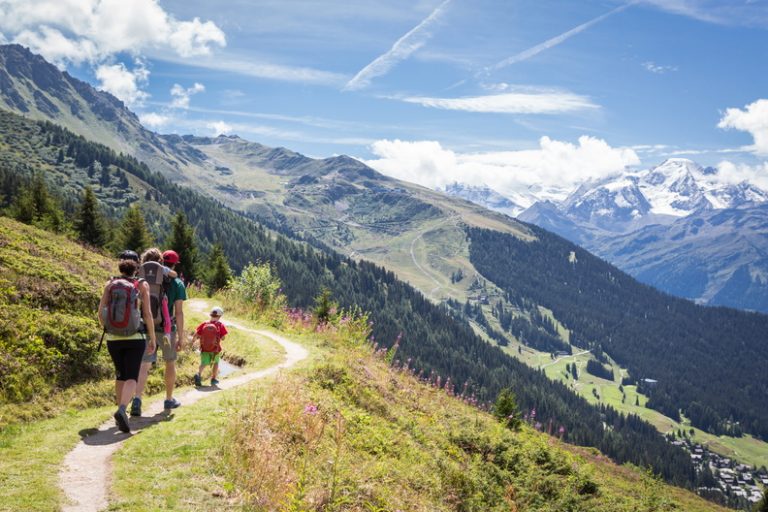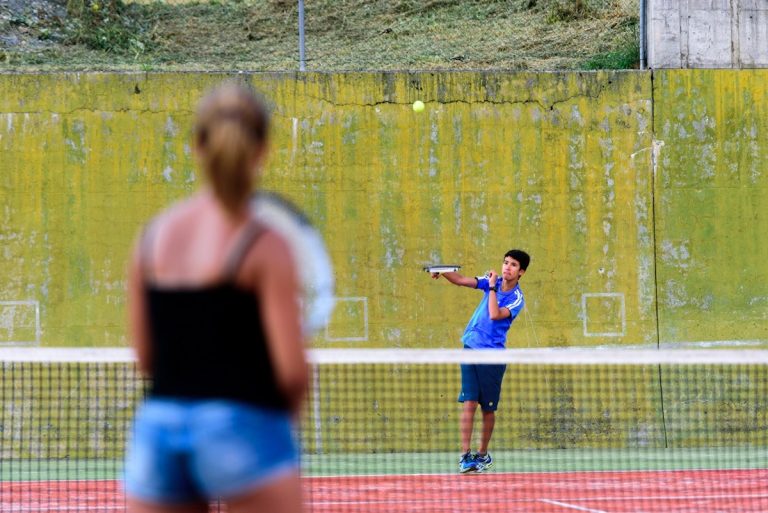Across the world there are countless numbers of summer camps, these come in various shapes and sizes, such as sports or language camps, and from camps with 50 campers to 500 campers! You could be looking for a camp local to you or an international camp, or you may need a camp which caters to your child’s specific needs. There are many things to consider when choosing a summer camp!
Choosing the right summer camp can end up being an overwhelming experience! To help, we have chosen what we believe are 10 important questions to ask yourself when you are choosing a summer camp for your child.
1. How big is the camp?
Just like adults, children will respond differently in different environments. It is important to consider the size of the camp when choosing a camp for your child. Do you think they will enjoy themselves more if they are in a smaller camp, where they will be able to receive more 1 on 1 attention and get to know everyone easily? Or do they feel confident around people whether they know them or not, and therefore would be happier in a larger camp where they can meet lots of new people at each activity?
2. How many returning campers are there ?
This is usually an indicator of whether campers enjoy camp. If there is a high number of campers going back each year, then naturally you can tell they are doing something right! The campers also get to know each other really well during their time at camp so it can be nice for children to have friends who they can come back to camp with year after year, especially if you’re looking for camp to become a part of your child’s summers for years to come. However, if it’s your child’s first time at camp, you may also want the reassurance that other children are going for the first time too, so that it wont be too ‘cliquey’, so a balance is usually best!
3. Where is the summer camp based?
The location of the camp will greatly influence the atmosphere surrounding the camp, for example, is the camp based in a school or park? Based in a school may make it feel more like ‘summer school’ to some children, or if the base is in a rural location such as the mountains or by a lake this may feel more adventurous. In this scenario a question to ask yourself would be, will my child spend the whole time in the park or school, or will they venture outside of this? Take a look at the camp programme and where activities take place to help answer this!
4. What is the camper to staff ratio like?
In a similar way to asking about the size of the camp, it’s important to ask what their staff to camper ratios are like. If you think your child will need extra attention for specific needs, then it is important to make this is known to the staff on booking. On average most camps should have a ratio of roughly 8-10 campers to 1 member of staff for children 6 years and over. Below this age it should be closer to 4-6 children to 1 member of staff.
5. Will my child be allowed to take their phone or ipad with them?
The majority of summer camps will discourage children from taking their smartphones or ipads. We have found that children will focus more on the activity that they are doing if they don’t have access to their phones. This will also help encourage children to become friends with one another, and have fun without relying on technology or worrying about their phones. Children will find once they are at camp, that even if they had their phones, they wouldn’t have time to use them!
This doesn’t mean that you won’t be able to contact your child whilst they are at camp, they may have options to write you a letter or if they can take phones, use their phones or a camp phone at free time to contact you. Not having access to their phones at all times also means children are less likely to feel home sick.
6. Who can I contact at camp for information on my child?
It’s good to check your options for contacting staff while your child is at camp. The camp director will most likely always be on hand if you need them. All camps will have an emergency contact number and most likely, the director or a manager will be on the other end of the line to help you.
You may also want to ask who the person responsible for your child’s welfare is whilst they are at camp, so you know who to talk to for an update, or if you have any worries or concerns. Make it known to your child that they can always talk to camp staff about anything they need help with, a big part of going to camp is independence and learning to deal with day to day issues by themselves, of course with the help of staff when they need it.
7. Are there transportation options for my child to come to camp or do I need to take them?
This will vary between camps. If the camp is local to you and most campers are coming from a similar catchment area, there may be a camp bus going from certain locations to take the children to the summer camp. If it’s a day camp, this may be an option each day. There is also almost always an option to drop off your children directly at the camp.
For international camps, usually the camps can arrange to pick the camper up from the airport and then take them to the camp; children often fly as unaccompanied minors with airlines and are collected from the airline by camp staff directly. They may fly alone if they are old enough (usually 12 years +), or with a parent or guardian. It is important to think about how your child would react and if they would be comfortable travelling alone by plane and bus to camp. If your child in nervous, it might be easier for them if you travel with them.
8. What is a typical day at camp like?
Again, varies for every camp, whether it’s a day or residential camp, and then if you’ve chosen an academic camp, an adventure camp, a sports camp or something else! Most camps follow a general structure where campers do a morning activity, group back together for lunch and then go off for their afternoon activity. This may be a set programme, or campers may have a choice of different activities they can do. If they are at day camp the children would most likely then go home at around 4pm or 5pm, if they are residential the kids would then follow their evening programme.
9. Do the children get free time at camp?
Free time can be when some of the best memories are made, hanging out with your new friends at camp, playing, chatting and having the time to rest, imagine and relax. Ask yourself what your child’s normal routine is like, are they a ‘go go go’ kid, or do they need to take things a bit slower and rely on some quiet time each day to relax and reflect on their day?
Depending on the answer you may wish to look at what facilities children have at camp for use in free time, or if you can sign them up to extra activities. If you feel like time to relax will be an important aspect to their day then you might want to leave these activities out, so they have some time to themselves or with new friends.
10. What group will my child be in?
Children will mostly always be grouped together by their age. Younger ones will tend to learn different skills at a slower pace to older children, therefore it is more enjoyable for everyone if they are split this way. This also goes for children’s interests and personalities.
There are hundreds of questions which I’m sure will cross your mind when choosing a summer camp. We get this! We always make sure we answer any queries and concerns prospective parents may have, no matter how many this may be. We always recommend to research your chosen camp so you know what to expect. Ask your child if they have questions too, as ultimately they will be the campers!
Head to our residential camps or day camps pages to find out more about the camps we offer in Verbier, of if you have any questions about choosing a summer camp feel free to contact us.



